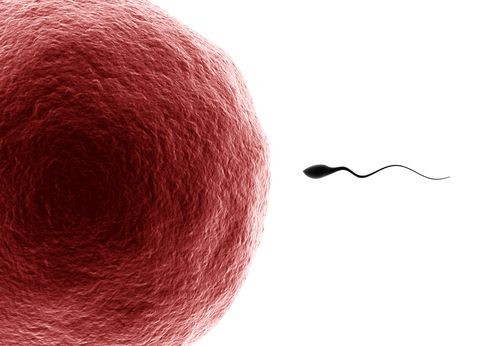UK Imports US Sperm To Fill Its Dwindling Banks Impacted By Anonymous Donor Laws

Is a newly popular U.S. export helping other countries while boosting our own GDP? The loss of anonymity when donating sperm appears to have impacted United Kingdom sperm banks, which are running dry, according to the British Fertility Society. As a result, some clinics have begun to import semen to keep up with demand, the BBC reported, relying primarily on the U.S. and Denmark, both major suppliers. While in 2005 only 11 percent of all sperm samples arrived from abroad, that figure rose to 24 percent in 2010 — one in every four donations, essentially.
In March 2005, the UK revised its laws regulating both sperm and egg donations to allow children conceived in this manner to identify their genetic parents once they reach age 18, just as children who are adopted may opt to trace their own biological parents. The donor, though, will not be able to trace a child. Since 2005, the average age of sperm donors in the UK has risen from 26 years old to 34 after the law changed.
“It may concern women, who are already older, who know their chances are lower, that if they go for an older sperm then their chance of a live birth will be further reduced and compromised," Dr Meenakshi Choudhary told the BBC. Having analyzed data from 39,282 cycles of IVF between 1991 and 2012, she concluded that older men had the same success rates as younger men. "Based on this we can say that age does not matter as long as the sperm quality is good," she said following a presentation at the European Society of Human Reproduction and Embryology annual conference last week. "Sperm donors are a select group of the population, they are healthy fertile donors who go through a stringent recruitment criteria,” she added. Perhaps because of this stringency, the numbers have fallen leading to less couples being able to access infertility treatment.
Couples may be turning to riskier practices like "DIY insemination with a friend's sperm or seeking treatment in a country with less fertility regulation," Dr. Allan Pacey, the fertility society’s chairman, told the BBC, without explaining why DIY insemination — turkey baster, anyone?— may be so risky. Additionally, some clinics may be setting a lower bar to "get donors through the door," he told the BBC. “I think that's a very dangerous road to go down," he said, noting that women using poorer quality sperm may be subjected to more invasive and expensive techniques.
Shortly after the 2005 law change, Laura Witjens, chair of the National Gamete Donation Trust (NGDT), told the BBC evidence from other countries suggested the profile of donors change when anonymity rights are removed. Using Sweden as an example, she explained how there is an initial fall in the numbers when students stop participating, and over time the older men step in and begin to donate.
"Instead of young single men who do not have children, it tends to be older men, who do have children and who see that what they are doing is creating a family, who come forward," she said. In the meantime, the U.S. and Denmark have another product to add to their GDP and list of exported goods, the kind of economic news that makes everyone happy.
Published by Medicaldaily.com



























